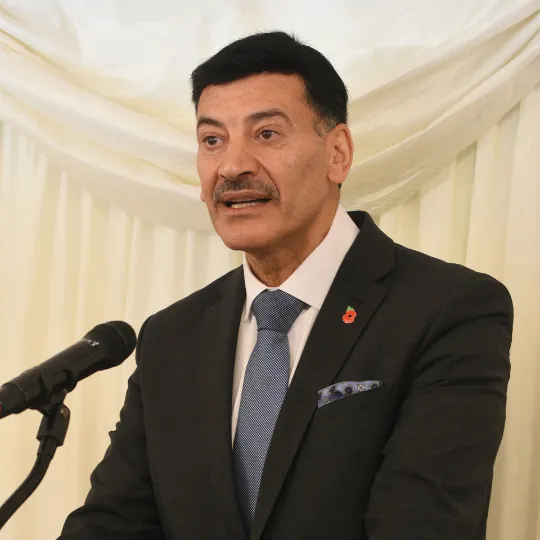“What is it like to be a human, are you inside the computer or outside the computer?”
Professor Sir Bashir M. Al Hashimi
28 February 2022
Bridging the gap between policy makers, technology and Metaverses
Thinking about the future of AI, Engineering PhD student Laila Faridoon reflects on the relationship between her research and the developments in technology.


Earlier this year, I had a great opportunity to interview Professor Sir Bashir M. Al-Hashimi, Executive Dean of the Faculty of Natural, Mathematical and Engineering Sciences, during the ‘Night of Ideas’; an event hosted by the Institut français which cast light on art, humanity, science and their relationship to technology. The event generated fascinating discussions on the future of AI, and pertinent ideas in relation to my current PhD research.
I joined King’s in 2019 to research the impact of emerging technologies on governments, an attempt to contribute and fill the gap between policy makers and technology. A year later in 2020, the COVID-19 pandemic resulted in an online shift of everything in our lives in a very short time, remaking the digital experience and putting a spotlight on a new artificial world known as a Metaverse - a combination of virtual experiences, environments and assets where users ‘live’ within a digital universe. However, in order to be able to fully realise the benefits of the Metaverse, we should first prepare humanity for the artificial world, an action that would require a collaboration between scientists and policy makers.
At the Night of Ideas, Professor Sir Al-Hashimi shared his personal insight and professional perspective on future technology and the role of scientists and policy makers in shaping it. Our conversation also touched upon how technologies that are being developed to blur the boundaries between the physical and artificial worlds require a deep understanding of the relationship between people and technologies, which would only happen through the involvement of the humanities and social scientists.
I really enjoyed the discussion and am very much grateful for this experience. It left me reflecting on a question that was raised by Professor Sir Al-Hashimi during the interview:
My research re-addresses the same question in the context of business and government sectors and on deciding how to further utilise such new concepts.
I could not agree more that it is crucial for universities, funding councils and governments to create a culture of engagement for scientists, engineers and technologists with policy makers that is based on trust, and away from self-interest when formulating policies and decisions related to the use of STEM and future technology in the service of society and the planet.
The full panel and interview are available to view on the Night of Ideas webpage.

